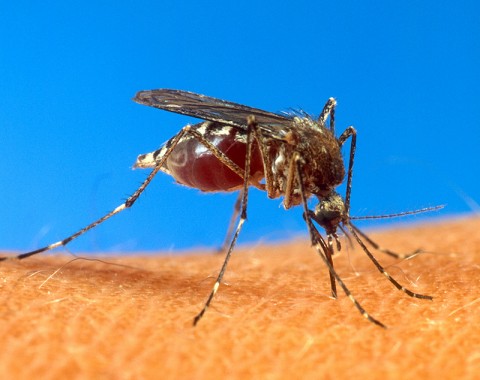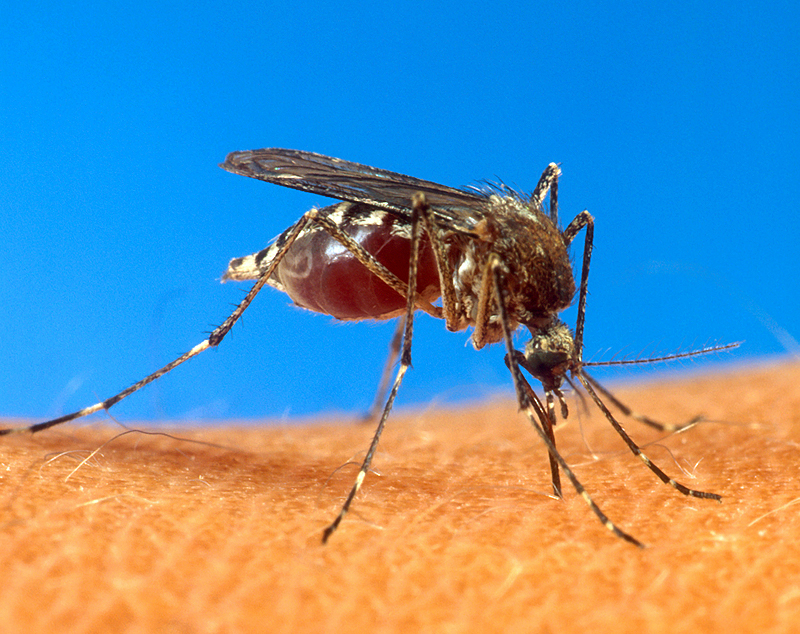 Nashville, TN – Seasonal frosts that help reduce mosquito activity in Tennessee will arrive soon, bringing some relief from the blood-feeding insects.
Nashville, TN – Seasonal frosts that help reduce mosquito activity in Tennessee will arrive soon, bringing some relief from the blood-feeding insects.
Mosquitoes in Tennessee are currently known to transmit diseases such as West Nile virus and La Crosse Encephalitis. With 45 cases of travel-related Zika Virus Disease confirmed thus far this year in Tennessee, there is yet another reason to “Fight the Bite.”

Centers for Disease Control and Prevention travel advisories are still in effect for parts of Florida, the Caribbean and countries in Central and South America where Zika virus is known to be locally transmitted.
CDC is cautioning travelers, particularly pregnant women and couples, to consider risks and protect themselves from mosquito bites to prevent disease transmission.
“We are committed to providing the best possible travel advice to help avoid Zika infections after investigations proving localized transmission of Zika have occurred, but there are still unknowns,” said Tennessee Department of Health Commissioner John Dreyzehner, MD, MPH. “Travelers are encouraged to consider their individual risks and risk tolerance as they plan vacation and business travel, and to take appropriate measures to protect themselves and their loved ones from mosquito bites or infection through sexual transmission.”
Zika is most often transmitted when a person is bitten by a mosquito infected with the disease. It can also be spread from person to person during sex. Consequently, a woman who has not traveled can be infected if her partner acquired the disease while traveling. Zika virus infection during pregnancy can cause microcephaly, a condition causing a baby’s head and brain to be smaller than expected, and other adverse pregnancy outcomes.
TDH and CDC recommend women and men with possible exposure to Zika virus consult with their healthcare providers about attempting conception. In some cases, a provider may suggest delaying pregnancy for at least six months after travel to an area with local Zika transmission. For the most current CDC updates on Zika, visit www.cdc.gov/zika/
“Women of childbearing age who are sexually active should know the travel history of their partners,” said TDH State Epidemiologist Tim Jones, MD. “If her partner has traveled within the last two months to an area where Zika is now active in the local mosquito population, she should abstain from all sexual activity with her partner or practice safe sex at all times to prevent disease transmission until her healthcare provider gives different direction. Because Zika can produce only mild symptoms in some people, a partner may not realize an infection has occurred and may unknowingly transmit it.”
TDH reminds travelers to “fight the bite” when traveling and at home with personal protection tactics, including the use of effective insect repellants, wearing clothing treated with permethrin, and wearing long, loose and light-colored clothing. Those who travel to areas where mosquitoes may be transmitting Zika are encouraged to avoid mosquito bites when returning to Tennessee and to increase their efforts to “tip and toss” or “drain and cover” water containers near their homes that could be hatching spots for mosquitoes.
About Tennessee Department of Health
The mission of the Tennessee Department of Health is to protect, promote and improve the health and prosperity of people in Tennessee. TDH has facilities in all 95 counties and provides direct services for more than one in five Tennesseans annually as well as indirect services for everyone in the state, including emergency response to health threats, licensure of health professionals, regulation of health care facilities and inspection of food service establishments.
Learn more about TDH services and programs at www.tn.gov/health



